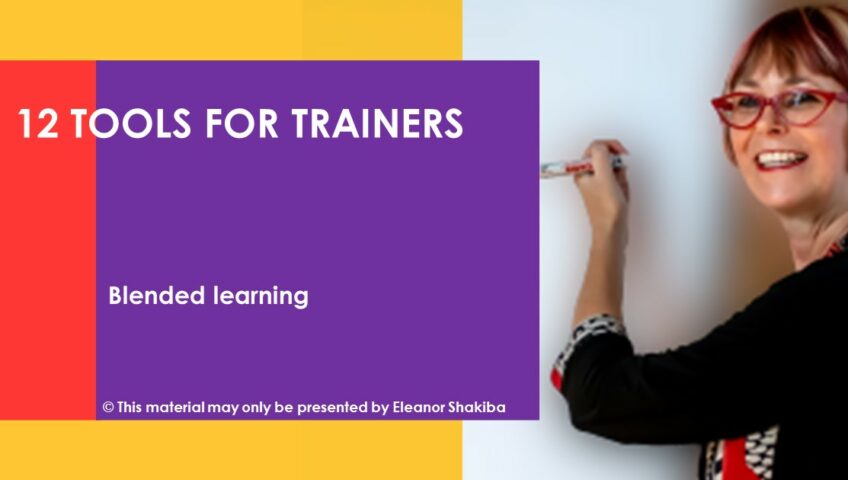What’s the difference between an average trainer and an excellent trainer? Facilitation skills. After all, anyone can gather information on Google, create bullet points in a PowerPoint presentation and then yap away at an audience. But great trainers never do this. Superb trainers are subject-matter experts, so they know far more than a simple Google search can reveal. Fabulous trainers know enough about the ‘what’ of their topic to fully focus on the ‘how’ of delivery. This frees them to use the most powerful training technique humans have developed. Experiential learning.
I first studied adult education in the mid-1990s. Back then, UTS was renowned for its expertise in experiential learning theory and methodology. Studying with top researchers in this area was an exciting experience. I quickly became fascinated by adult learning theory and experiential learning techniques. My passion for this field led to me studying many of the origin points of experiential learning techniques. These included psychodrama, Rogerian group work and applied psychology.
The point about experiential learning is that it engages students in both hands-on doing and reflecting on the results of that doing. It’s a highly interactive and engaging way to prompt learning. At its best, experiential learning provides a methodology for helping course participants turn ‘negative’ experiences into rich sources of wisdom and knowledge. In fact, experiential learning processes are very similar to those adopted by advocates of growth mindset techniques.
Sadly, many trainers are not familiar with experiential learning methodology. This is partly because our modern certificate in training and assessment qualifications focus on presentation skills rather than group work skills. In a way, this is good news for those of us who want to excel in our field. By learning to use experiential techniques, we can easily enrich our practice.
If you like to master group work and experiential learning tools, attend one of my intensive programs for trainers and presenters. For now, though, here are a couple of thoughts to get you started.
Professional framing means your experiential activities will stay on track
Skilled facilitators know that high quality briefing leads to high quality learning experience. Always clearly explain the purpose and the process of experiential activities before starting them. Make yourself available throughout the activities for participants to refer to. This is particularly important for more concrete learners, who sometimes need guidance in the reflective part of experiential debriefing.
Let go of meaning
The whole point of experiential techniques is to enable participants to create their own meaning from experience. This means, that as a trainer, you need to make space for learner interpretation. Often the messages participants gain from activities are far more meaningful than those you wish to impart. Accept this and use your debriefing skills to ensure that learning translates into behaviour change in the real world.
Remember that fast training isn’t necessarily effective training
Don’t give in to pressure to condense your session into a 30-minute format. Experiential techniques require time for processing. Ideally, design your activities so you can scale the timings up and down according to the needs of the group. And remember, great trainers are flexible and respond to learner needs in the moment.
Of course, using experiential learning techniques does require you to be confident and ready to adapt. To achieve success, spend time honing your facilitation and debriefing skills.
About the author: Eleanor Shakiba
Eleanor is a consultant in the areas of positive psychology training and solution focused coaching. She partners with HR and L&D teams to build vibrant cultures where ‘positive deviants’ thrive. Areas she specialises in include positive mindset, proactive communication and purposeful leadership. Eleanor is qualified in Social Anthropology, Positive Psychology, Counselling, Coaching, Adult Education and Neuro Linguistic Programming. Her passion is working with positive deviants to build success. Download a copy of her free ebook Positive Psychology Toolkit for HR and L&D Practitioners .
